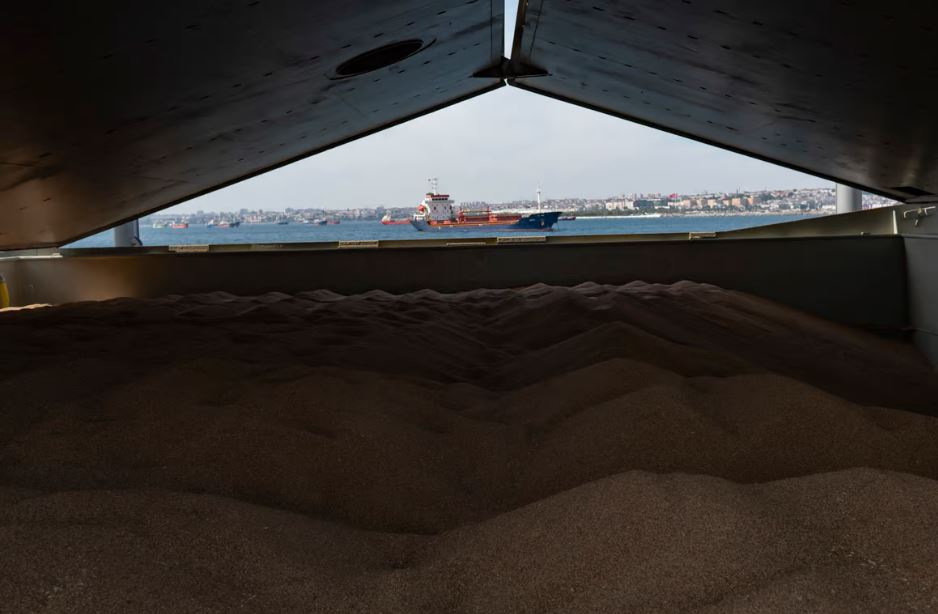Grain Deal Continues Despite Russia's Withdrawal
Grain deal continues despite Russia's withdrawal as three more vessels left Ukrainian ports on Tuesday, the UN-led center coordinating the Black Sea grain export deal reported. According to the center, Ukraine, Turkey, and the UN had all approved the movement of the ships, and Russia "had been informed."
Author:Tyreece BauerReviewer:Elisa MuellerNov 01, 202299.4K Shares1.7M Views

Grain deal continues despite Russia's withdrawalas three more vessels left Ukrainian ports on Tuesday, the UN-led center coordinating the Black Sea grain export deal reported.
According to the center, Ukraine, Turkey, and the UN had all approved the movement of the ships, and Russia "had been informed."
Twelve ships leaving Ukraine on Monday carried 354,500 tonnes of food. Russia stopped supporting the agreement on Saturday, blaming Ukraine for attacking its navy via a safety corridor.
According to the UN, there were no ships within the hallway that evening. The attack took place in Crimea, a peninsula in the southern part of Ukraine that Russia annexed in 2014.
Volodymyr Zelensky, the president of Ukraine, has accused Russia of "blackmailing the globe with starvation," which Russia rejects.
Russian President Vladimir Putin told his Turkish counterpart over the phone that he would only think about restarting the grain agreement when the Crimea incident probe was over. The UN, Turkey, and Ukraine have all agreed that there will be no ship movement on Wednesday.
According to a spokesman for Odesa's military administration, who was quoted by Reuters, Monday's containers represented a record daily number of exports since the grain deal got underway.
According to the government, Ethiopia, where "the actual risk of widespread hunger" existed, received one of the ships carrying 40,000 tonnes of grain.
Following its invasion of Ukraine in February, Russia's navy established a blockade on its Black Sea ports, holding over 20 million tonnes of grain intended for sale as well as other foodstuffs like maize and sunflower oil inside the nation.
But in July, Turkey and the UN helped broker a compromise between Ukraine and Russia that allowed grain deliveries through Black Sea ports to resume.
However, on Monday, President Putin announced the arrangement was being put on hold, blaming Kyiv for the "massive" drone attack on its navy in the port of Sevastopol.
He claimed that in order to undertake grain exports, maritime safety must be guaranteed and that doing so would be too risky.
"Ukraine must guarantee that there will be no threats to civilian vessels," Mr. Putin said in a live speech.
Kiev has refused to claim credit for the strike, claiming Moscow had long planned to renege on the deal that had been mediated internationally and used the attack as justification for doing so.
According to Kremlin spokesman Dmitry Peskov,
“„In conditions when Russia is talking about the impossibility of guaranteeing the safety of shipping in these areas, such a deal is hardly feasible, and it takes on a different character - much more risky, dangerous and unguaranteed.- Kremlin spokesman Dmitry Peskov
The US has denounced Russia's departure from the agreement, accusing Moscow of "weaponizing food."
Josep Borrell, the head of foreign policy for the EU, has pleaded with Russia to change its mind, arguing that endangering the shipment of grains and fertilizers would worsen the world food crisis.
Conclusion
Russian ambassador to the US rejects claims that his nation is aggravating the world food crisis, claiming that such accusations are unfair. The halt comes as Russia, which had earlier claimed that its evacuations of the occupied Kherson region had ended, now claims to have increased them.
Jump to

Tyreece Bauer
Author
A trendsetter in the world of digital nomad living, Tyreece Bauer excels in Travel and Cybersecurity. He holds a Bachelor's degree in Computer Science from MIT (Massachusetts Institute of Technology) and is a certified Cybersecurity professional.
As a Digital Nomad, he combines his passion for exploring new destinations with his expertise in ensuring digital security on the go. Tyreece's background includes extensive experience in travel technology, data privacy, and risk management in the travel industry.
He is known for his innovative approach to securing digital systems and protecting sensitive information for travelers and travel companies alike. Tyreece's expertise in cybersecurity for mobile apps, IoT devices, and remote work environments makes him a trusted advisor in the digital nomad community.
Tyreece enjoys documenting his adventures, sharing insights on staying secure while traveling and contributing to the digital nomad lifestyle community.

Elisa Mueller
Reviewer
Elisa Mueller, a Kansas City native, grew up surrounded by the wonders of books and movies, inspired by her parents' passion for education and film.
She earned bachelor's degrees in English and Journalism from the University of Kansas before moving to New York City, where she spent a decade at Entertainment Weekly, visiting film sets worldwide.
With over 8 years in the entertainment industry, Elisa is a seasoned journalist and media analyst, holding a degree in Journalism from NYU. Her insightful critiques have been featured in prestigious publications, cementing her reputation for accuracy and depth.
Outside of work, she enjoys attending film festivals, painting, writing fiction, and studying numerology.
Latest Articles
Popular Articles